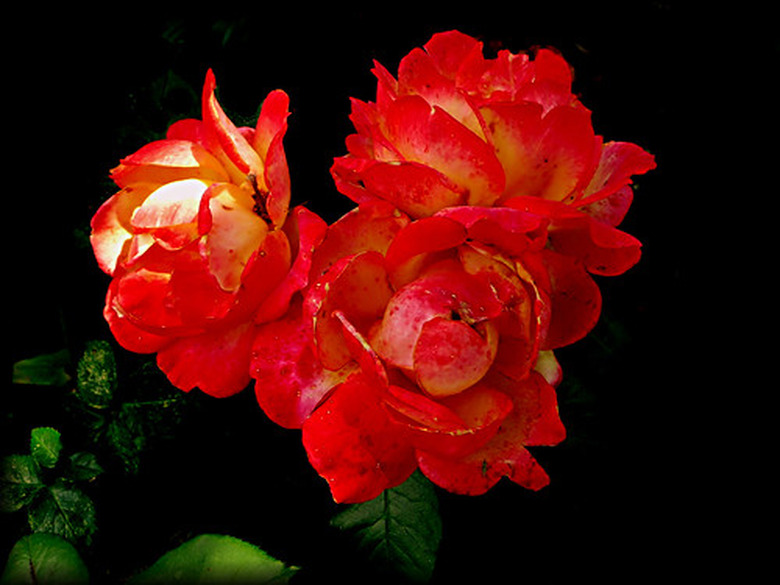Compost For Rose Plants
Compost is the latest buzz for growing strong, healthy, beautiful roses. According to Rose Magazine, top dressing with compost is one of the best things that you can do for your roses, and Lynn Bennett, author of "Second Hand Rose," says, "Compost is the best soil amendment and plant food you can add to your rose garden." In fact, compost does provide nutrient-rich soil, and some even claim that it improves resistance to many diseases that afflict roses and repels pests.
Rose Requirements
Roses need nutrient-rich, well-drained soil, and a balanced feeding regimen to thrive. According to Dennis Copson, "The soil you plant the rose bush in should be light and rich in organic material, somewhat on the sandy side, to ensure good drainage and ease of root development."
Benefits of Compost for Roses
The addition of compost to garden soil acts as a natural soil enhancer, loosening up clay soils, retaining moisture in sandy soils, and balancing soil pH, as well as providing needed plant nutrients, warming the soil in spring and cooling it in summer. Lynn Bennett claims that, "Any plant grown with compost is much stronger and healthier and therefore can fight off attacks from bugs, diseases and harsh weather conditions." Compost can be used as a soil amendment, being worked into the soil before roses are planted, or as a top dressing for fertilization during the growing season.
Compost Tea as Liquid Fertilizer
Compost tea is a liquid fertilizer made by steeping compost in water for several days. Compost tea can be used to water newly planted seedlings and applied as nutrient-rich fertilizer throughout the season.
- Compost is the latest buzz for growing strong, healthy, beautiful roses.
- The addition of compost to garden soil acts as a natural soil enhancer, loosening up clay soils, retaining moisture in sandy soils, and balancing soil pH, as well as providing needed plant nutrients, warming the soil in spring and cooling it in summer.
Benefits of Vermiculture for Roses
Vermiculture refers to worm castings or worm compost, which is much richer in nutrients than traditional compost and provides nitrogenous fertilizer. Vermiculture has been shown through extensive testing to improve plant growth, including improved bloom size, quantity, quality and color; to act as an effective fungicide; to repel aphids and white flies, which roses are susceptible to; and to be an excellent source of nitrogen. Ellen Sandbeck says, "Vermicompost is concentrated and considered by many to be nature's most perfect fertilizer. As such, it should be used as fertilizer, not compost, and used sparingly. For example, plants that are heavy feeders such as squash, corn, tomatoes and roses will benefit from a cup or so of vermicompost mixed into the top layer of their soil."
Worm Tea as Liquid Fertilizer
Worm tea is the liquid fertilizer derived from vermiculture that has been steeped in water, with some aeration, that is 100 percent organic and contains an abundance of the nutrients and minerals that roses need to thrive. In addition, worm tea is said to act as a natural disease and insect control. As a liquid fertilizer, worm tea can be used as a root watering application or as a foliar spray, to be absorbed directly through the leaves. While root watering is effective, worm tea is a potent fertilizer when sprayed directly onto the leaves of your plants.
- Vermiculture refers to worm castings or worm compost, which is much richer in nutrients than traditional compost and provides nitrogenous fertilizer.
- Vermiculture has been shown through extensive testing to improve plant growth, including improved bloom size, quantity, quality and color; to act as an effective fungicide; to repel aphids and white flies, which roses are susceptible to; and to be an excellent source of nitrogen.
References
- "Rodale's Successful Organic Gardening: Vegetables." Michelak, Patricia S. and Cass Peterson, Emmaus: Rodale Press, 1993.
- Doitgreen.org: Introduction to Worm Composting (Vermiculture)
